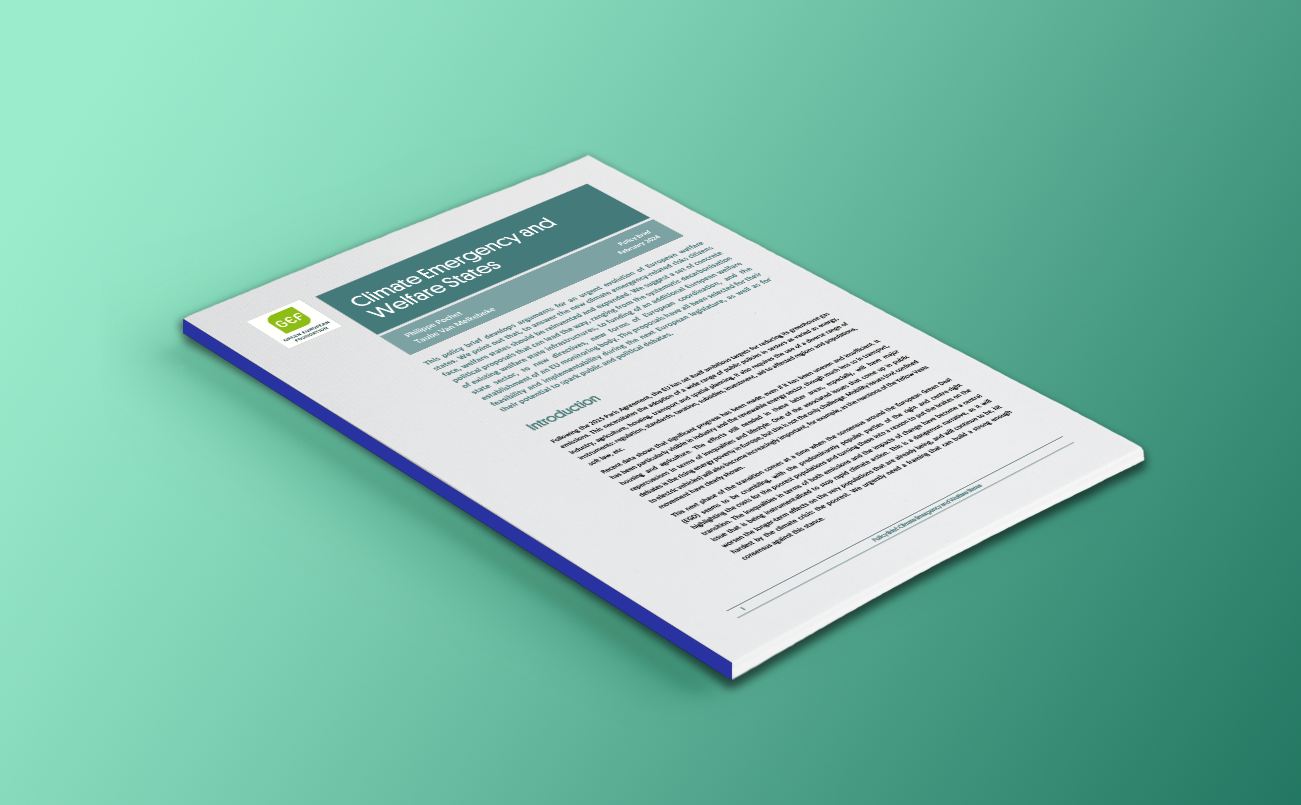About
This policy brief develops arguments for an urgent evolution of European welfare states. We point out that, to answer the new climate emergency-related risks citizens face, welfare states should be reinvented and expanded. We suggest a set of concrete political proposals that can lead the way, ranging from the systematic decarbonisation of existing welfare state infrastructures to funding of an additional European welfare state sector, to new directives, new forms of European coordination, and the establishment of an EU monitoring body. The proposals have all been selected for their
feasibility and implementability during the next European legislature, as well as for their potential to spark public and political debates surrounding the intersection of the climate emergency and welfare states’ policy.
Contributors
- Philippe Pochet, GEF fellow and core expert to this Knowledge Community. In the past, he held the position of Director of the Observatoire Social Européen (OSE) for over 15 years. From 2008 to 2023, he served as the General Director of the European Trade Union Institute (ETUI). Currently, he is a Professor at the Catholic University of Louvain and a Visiting Professor at the College of Europe in Bruges. He also holds the position of Affiliate Professor at Sant’Anna School of advanced studies, Pisa. Next to the topic of the Single Market, Philippe is also collaborating with GEF on Climate Emergency and Welfare States.
- Taube Van Melkebeke, Head of Policy at the Green European Foundation (GEF). She leads the different Knowledge Communities of the foundation. For further information, contact her at taube.vanmelkebeke@gef.eu.
This policy brief has been realised by the Green European Foundation with the financial support of the European Parliament to the Green European Foundation. The European Parliament is not responsible for the content of this publication.
Format: 24x32cm
Number of pages: 18
Publication date: 2024, February 29
Type: Policy Briefs


